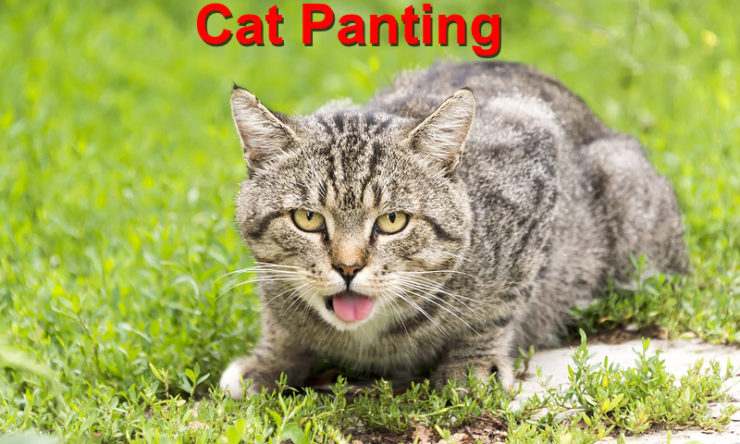Cat Panting and Everything You Need to Know About it
Panting is often a result of shortness of breath, especially after an exhausting activity. Unlike in other pets especially canines, cat panting is not common. However, your cat can pant after a tiring activity but the panting should only last for a short while.
The animal should get back to its normal state after it has come down and rested. Persistent cat panting is a sign of a dysfunction of the respiratory system. If you notice abnormal panting in your pet it is vital that you pay more attention and even contact your veterinarian.
Signs of Cat Panting
1. Shortness of Breath– panting is usually accompanied with difficulty in breathing and your pet will breath heavily making noises in the process.
The cat will have its elbows pointed away from the body with a stretched neck and also struggle to stand.
In some instances, your pet may cough and even end up vomiting.
Watch out for a change of color of the tongue. It usually turns red and the cat’s gum could also have a bluish or purplish color.
What causes Cat Panting?
Cardiomyopathy-which is an enlarged heart than the normal heart usually results in congestive heart failure. There is an accumulation of fluids in the lungs and chest since the heart cannot actively pump. This leads to rapid breathing and panting.
1. Asthma – If you cat has this condition, you will notice difficulties in breathing that causes it to pant in an effort to get enough air. Asthma causes constriction of airways that connect to the lungs.
2. Heartworms – When your cat is infested by these parasitic worms the blood vessels in the heart are affected and the entire cardiovascular system leading to respiratory complications.
What is the Treatment of Cat Panting?
If you notice any symptoms of abnormal panting in your cat, ensure that you immediately contact your veterinarian. The veterinarian will do a thorough examination of your pet through blood tests and X-rays to determine the root cause of the panting.
1. Antibiotics – If the doctor finds bacterial infections, antibiotics are administered to treat the infection or inflammation.
2. Blood transfusion is recommended in the case of a cat diagnosed with anemia
3. If there is a presence of accumulated fluid, the fluid is drained by putting a needle into the chest to ensure that all the fluid has been removed.
4. Cats that suffer from asthma are put on medication that will help them manage the condition and allow them to breathe normally.
Conclusion
Watch out for any signs that indicate abnormal panting in your cat and contact your veterinarian immediately.
References: Catster, Pet Place, Mercola






